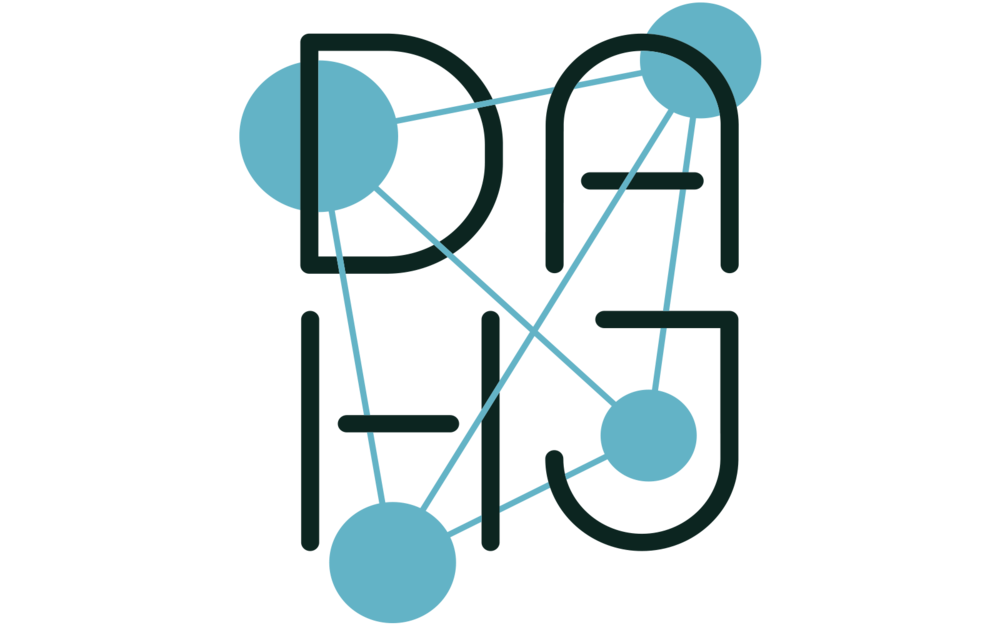The CAA Annual Conference brings together over 5,000 art historians, artists, designers, and visual arts professionals in all stages of their careers. Each year we offer over 300 sessions, selected by the CAA Council of Readers and the Annual Conference Committee, representing the vast scholarship and practice of CAA members. CAA 2020 includes a full program of workshops, distinguished speaker panels, opportunities to network, and a celebrated Book and Trade Fair.
In collaboration with the Committee on Women in the Arts, CAA offers 50 percent of the conference’s content in celebration of the Centennial of Women’s Suffrage in the United States, while also acknowledging the discriminatory practices that limited voting rights for Indigenous women and women of color, even after the passage of the 19th amendment in 1920.
The following are the Digital Art History related sessions at this year’s conference. These sessions are the result of mining the 2020 schedule by searching the terms “data,” “virtual,” and “computer.” If there is a DAH session you feel is missing or should be removed from this list, please contact us at: news@dahj.org.
Wednesday
Mid-Morning Sessions
A register of Antiquities’ sales in France in the 19th century : A digital maping of collectors
Weather Wisdom: The Tempestry Project
Bridging Networks: How Mail Art and Social Media Can Help Each Other
Sociopoetic Economies: Mail-Art's On-Sendings to CyberWarfare's Viral Manipulations
Early Afternoon Sessions
Women of Color Feminist Intervention in the Age of the Influencer
Holographic Art and the Animated Image: Histories and Conservation
Nauman’s Body of Information: The Holographic Portrait c. 1970
Every Bar You’ve Ever Been Into': Haptics, Memory, and Motional Empathy in Paula Dawson’s Holograms
From Text to Algorithm: Big Data’s Emerging Subject
A Box of Candy for Candy Darling: Multimedia Mourning and Merrymaking
Late Afternoon Sessions
What is Lurking Underneath Notre Dame's Roof? Visual Heritage and VR Ethics in the Digital Age
Hands-On to Eyes-On: From Material Collections to Digital Exhibitions
The Digital Revolution in Archaeological Practice
Thursday
Early Morning Sessions
Advanced Topics in Digital Art History: 3D (Geo)Spatial Networks
African Cultural Patrimony in An Age of New Digital Image Regimes
Towards a web-based representation of spatial change over time at San Julián de Samos
Living Beings and Movement in Historical Space: Opportunities in Agent-based Modeling
Mid-Morning Sessions
Mapping Senufo: Rethinking the Art-Historical Monograph in the Era of Digital Publication
Capturing Scholarship and Datasets in Contemporary Art: the Joan Jonas Knowledge Base
Lunch Sessions
Creating Digital Humanities Projects in Art and Art History
Formulating an Ancient American Provenance Database
Digital Art History Society - Business Meeting
Early Afternoon Sessions
Reconciling Analog Drawing Traditions with a Digital Future
New Media Caucus: Edge of Being
The Legacy of Jack Burnham on Video Game Art and Emerging New Media
Teaching code through art and design with MUGEN: the Mini UnGame ENgine
Market Data: Beyond Prices and Provenance
From Knowledge to Data in Art History
Late Afternoon Sessions
Early Computer Game Design and the Pleasure of Pragmatic Systems
Black Lunch Table Project: Wikipedia-edit-a-thon
New Media Caucus Panel: Being (T)here Presence and Embodiment in Video and Digital Art
Lost in Translation: Early Modern Global Art History and the Digital Humanities
Priorities, Concepts and Directions: Weaving Some Digital Accounts of Early Modern Textiles
What Lies Beneath: New Tools for direct exploration of Peter Paul Rubens's "The Fall of Phaeton"
Evening Sessions
Re-Weavings: Data, Grieving, and Embodied Practice for Climate Crises
Encoding the Everyday: Feminist Conceptual Art’s Resistance Self-Quantification
Friday
Early Morning Sessions
Advances In Eco-Sensing and the Soundscape
Mid-Morning Sessions
Black Lunch Table Project: Wikipedia-edit-a-thon
New Stories for the Anthropocene: AI and Design for the Non-Human
Using Digitally Immersive Technologies in the Art Historical Classroom
The Fusion of Art, Science and Technology
Early Afternoon Sessions
Pen to Paper in the Digital Age: Artist's Correspondence and Writings from the Nineteenth Century
Digital and Haptic: Merging New and Old Technology
Terracotta Clouds and Ice Cream Poems: Materializing the Digital Sky
Liminal Spaces Between the Arts and Engineering: Digital Design and Fabrication at SUNY New Paltz
Mapping Social and Spatial Encounters in Eighteenth-Century Venice
Copyright: Images, Open Access, and Fair Use for Artists and Art Historians
Late Afternoon Sessions
The Museum Version 2.1: Inclusive design through digital accessibility
Possible Uses of Digital Network Analysis in Teaching Art History
Research, Collect, Curate, and Digitize: How Undergraduates Created a New Natural History Collection
Critical Visual Analysis of Graphic Expressions of Emotions Over Time
Evening Sessions
Visualized Inequalities from alien worlds
Interactive Game Design: Sisters Are Doin' It for Themselves
Veteranas and Rucas: Guadalupe Rosales’s Chicanx Archive
Saturday
Early Morning Sessions
Research Institutes and New Initiatives
The Florentine Codex Initiative at the Getty Research Institute
Digital Art History and the Getty Vocabularies
At the Limits of Intermedia: Contemporary Art and the Politics of Technology
The Art of Vera Molnar: Computation: Iteration: Abstraction
Mid-Morning Sessions
Anticolonial Open Knowledge: Digital Curation for the Pluriverse
“Is this Thing On?”: Anecdotes from Installing Digital Art
Resonating Reality: ARTISTS in AR/VR
Embodied Empathy - Virtual Reality
The Augmented Reality Public Art in Baltimore’s Inner Harbor
Translocative and other Realities
From the Pixel to the Sensorium: De-Emphasizing the Lens and Making Smart Media
Lunch Session
Early Afternoon Sessions
Fear of Missing Out: Performance Art through the Lens of Participatory Digital Culture
Embodied Languages: Body-graphs and Flesh Interfaces in Japanese New Media Art
#Metoo: embodiment, activism, and archives
Flesh and Circuit: Rethinking Performance and Technology
Late Afternoon Sessions
ARTificiality: Aesthetics of Embodiment in Digital Art
The Image of Self: Parafictional Identities in the Digital Sphere
Where AR We: The Embodied Experience in Augmented Reality (AR) Art
Dancing With Robots: Questions About Composition with Natural and Artificial Bodies
Artificially Intelligent Painting – or is it?
Technologies that Support Students with Disabilities in Accessing Lost Art
Centering the Student Experience: Using Data to Improve Student Learning
Transparent Instruction Improves Student Success: Data from a National Study

